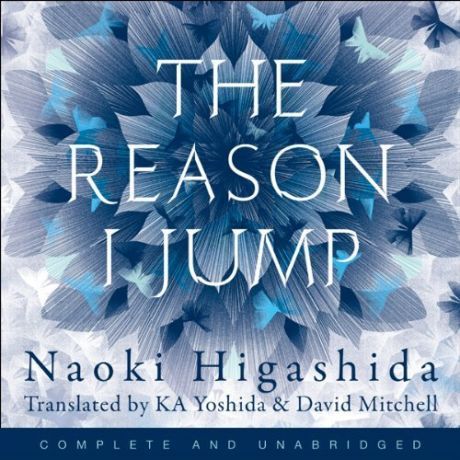Arts
You are here
Book Review: The Reason I Jump

August 29, 2014
In a world where government policy regarding disability (and education for that matter) seems to be more about hollow words and Band-Aid solutions than actually realizing the potential of a child, The Reason I Jump gives a first-hand look at the thoughtful insights from one of those children.
The book was written by a then 13-year old boy from Japan. Naoki Higashida’s autism makes spoken communication nearly impossible, but he used an alphabet grid table to point to letters to form sentences and paragraphs which a teacher then recorded to form this 130-page glimpse into a curious, complex and intelligent mind.
The book is organized into chapters based on questions such as “why do you ask the same questions over and over?” and “do you enjoy your free time?” Naoki’s responses dispel some of the common sense understandings of autism and reveal what it is like to have an incredible desire to connect with other people while hampered by a disorder that makes even the most mild interactions fraught with incredible difficulty.
The Reason I Jump offers something special to all those who know or care for someone with autism; a detailed tour of a mind with so much to offer, yet so few ways to express that unique perspective. As Noaki notes, “normal people think we’re highly dependent and can’t live without ongoing support, but in fact there are times when we’re stoic heroes.”
What might be most interesting for Socialist.ca readers though, is the narrative that comes through of a capitalist system unwilling or unable to deal with people with disabilities. In Naoki’s description of life with autism, we hear of family members bearing the weight of raising a child with a disability, ineffective government supports, overworked support workers and a world that is very inhospitable to difference.
The introduction to the English version puts a fine point on this, as David Mitchell notes: “people with autism must survive in an outside world where ‘special needs’ is playground slang for ‘retarded,’ where meltdowns and panic attacks are viewed as tantrums, where disability allowance claimants are assumed by many to be welfare scroungers, and where British foreign policy can be described as ‘autistic’ by a French minister.”
As governments across the world make cuts to education funding under the guise of “belt-tightening” austerity, shunning the advice of education and disability research, it becomes clear that books like The Reason I Jump represent some of the brief moments of heart in a heartless capitalist system.
Section:
Topics:










